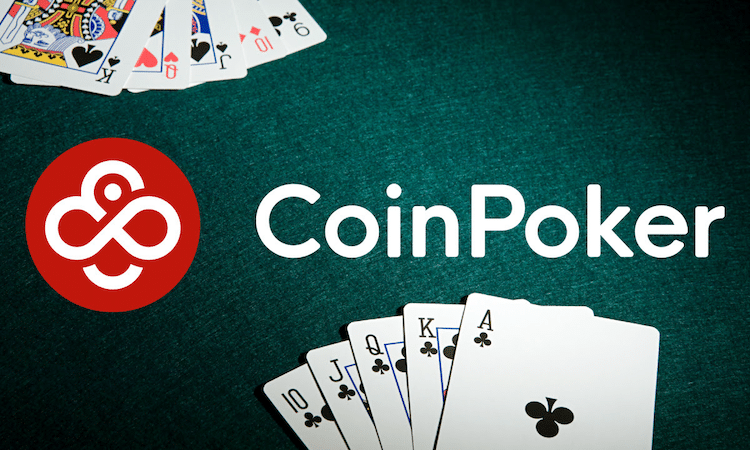As Brazil gets ready to implement regulated sports betting, lawmakers are focusing on introducing safer gambling measures to protect players who are most at risk. Two new bills have been introduced to address the growing concerns related to gambling addiction and potential harm, particularly for the vulnerable sections of society.
Fresh Measures Targeting Safer Gambling Practices
Senator Alessandro Vieira has proposed a bill, numbered PL 3,718/2024, specifically targeting betting among certain groups such as senior citizens and people from lower-income backgrounds who rely on social welfare. The goal is to minimize the possibility of excessive betting by these individuals. Vieira’s proposal includes limiting betting amounts based on a person’s declared income. If a player exceeds these limits, they could face a ban on placing further wagers.
Another bill, PL 3,745/2024, was introduced by Elmar Nascimento. While both bills aim to reduce the risks associated with gambling, Nascimento’s proposal focuses more on setting a cap on the percentage of monthly income that a person can use for gambling. According to his bill, players should not be allowed to spend more than 15% of their monthly income on betting. Nascimento’s measure also seeks to restrict high-risk individuals from placing bets during late-night hours, specifically between 9 pm and 6 am.
Concerns and Previous Measures for Safer Gambling
Brazil has been grappling with gambling-related harm concerns for some time, and these new bills are not the first attempts to address the issue. In an earlier move, Brazilian banks had advocated for banning the use of credit cards for betting, arguing that this could help reduce overspending among vulnerable bettors. The Brazilian Institute for Responsible Gaming (IBJR) backed this proposal, suggesting that credit cards should not be accepted by betting operators as a form of payment.
Another group of lawmakers and regulators suggested limiting the betting capabilities of individuals receiving Bolsa Família, a popular social welfare program, to prevent them from misusing government assistance funds for gambling purposes. Calls for restrictions on gambling advertisements have also been made, mirroring similar movements in other countries where regulated markets are in place.
Wider Implications for Brazil’s Gambling Market
The issue of problem gambling and financial harm has caught the attention of various organizations in Brazil. The National Association of Games and Lotteries (ANJL) recently responded to concerns raised by the Brazilian Society of Retail and Consumption (SBVC) regarding people allegedly using money meant for basic necessities, such as food and medical expenses, to fund their betting habits.
Brazilian banks have expressed worries not only about the risk of problem gambling but also about the broader financial disruptions that regulated sports betting could bring. The official launch date for Brazil’s regulated betting market is set for January 1, 2025, and all operators that have not secured a license have been asked to halt operations by October 1, 2024.
Government Response and Industry Reactions
President Luiz Inácio Lula da Silva is expected to address these growing concerns about gambling-related harm later this week. His response could shape the future direction of Brazil’s gambling regulations. As the date for the regulated market launch approaches, the government is working to balance the economic potential of the gambling industry with the need to protect its citizens from the associated risks.
With the introduction of these new bills, Brazil is showing that it is taking the issue of safer gambling seriously. If passed, these measures could serve as a blueprint for other countries looking to establish a safer and more responsible gambling environment.
Responsible Gambling and Latin America
Responsible gambling is an essential framework designed to protect players from the potential risks associated with gambling activities. In Latin America, countries like Argentina, Chile, and Colombia have taken measures to implement responsible gambling practices, aiming to strike a balance between providing entertainment and ensuring player safety. These initiatives often include self-exclusion programs, mandatory breaks, and limit-setting tools that allow individuals to control the amount of time and money they spend on gambling. In many cases, governments work alongside operators to develop guidelines and enforce responsible behavior, with a focus on creating an environment that prioritizes player well-being.
Argentina, for instance, has taken a regional approach to responsible gambling, with each province managing its own regulations. The Buenos Aires province has established a comprehensive set of guidelines that require operators to display responsible gambling messages prominently, offer self-exclusion options, and monitor player behavior for signs of problem gambling. Additionally, Argentina has made efforts to educate the public on the risks of gambling addiction through campaigns that involve collaboration between local governments and health organizations.
Similarly, Colombia has been a regional leader in responsible gambling, with its regulatory body, Coljuegos, actively promoting safe gambling habits. The country has implemented programs that provide resources for problem gamblers, including helplines and support groups. Online operators are required to adhere to strict advertising guidelines to prevent targeting vulnerable populations, and the national framework encourages a culture of transparency and accountability among licensed operators. In Chile, responsible gambling measures include self-exclusion systems and strict advertising restrictions, reflecting a commitment to minimizing the risks associated with gambling. These diverse approaches demonstrate that responsible gambling is a growing priority in the region, with each country adapting strategies to suit its unique legal and social landscape.

CoinPoker: A Blockchain-Based Poker Platform for Crypto Enthusiasts
For those passionate about poker and curious about the integration of digital currencies, CoinPoker delivers a distinct experience by combining the thrill of poker with the benefits of cryptocurrency. Unlike traditional online poker sites, CoinPoker leverages blockchain technology to create a decentralized, secure, and private gaming environment. This integration of cryptocurrencies positions it uniquely among poker platforms, though it hasn’t yet captured a broader audience outside of poker and sports betting enthusiasts. Let’s explore what makes CoinPoker stand out and whether it could be the right fit for dedicated poker players.
Building on Blockchain Technology
Established in 2017, CoinPoker set out to revolutionize the online poker landscape by building a platform rooted entirely in blockchain technology. The initial launch offered free-to-play games, giving users the opportunity to try out the site without financial commitment. By 2018, CoinPoker moved to real-money games, allowing players to wager using different cryptocurrencies. At the heart of this system is its own native token, CHP, which plays a pivotal role in rewarding users and driving engagement within the platform’s ecosystem.
Apart from the CHP token, CoinPoker also accepts several other major cryptocurrencies, such as Bitcoin (BTC), Ethereum (ETH), and Tether (USDT), all of which are supported on the Ethereum blockchain. This reliance on blockchain technology offers additional layers of transparency, security, and decentralization—advantages that are hard to find in conventional online poker environments.
One of the standout features of CoinPoker is its use of a Random Number Generator (RNG), which ensures the integrity of every game played. This technology prevents any possibility of game manipulation, reinforcing the fairness and credibility of the platform. Additionally, CoinPoker prioritizes player anonymity, allowing users to enjoy games without sharing personal details, thanks to secure cryptocurrency wallet transactions.
Endorsements from Professional Poker Players
CoinPoker has garnered recognition within the poker community, partly due to endorsements from renowned poker professionals. Notable supporters include Mario Mosböck, a former professional Austrian footballer who transitioned into a poker player, and Patrick Leonard, a well-known British poker pro. These endorsements have helped boost CoinPoker’s standing among the poker community, solidifying its credibility.
A key factor in CoinPoker’s appeal is its commitment to transparency. The platform operates under a Curaçao eGaming license and employs a Proof of Reserves (PoR) system. This system reassures users that their deposits are secure and that the platform has sufficient reserves to meet its financial obligations. CoinPoker currently holds about $16 million in player deposits, with total reserves nearing $16.75 million. This financial structure provides a solid safety net, ensuring that users’ funds are adequately protected.
Quick Crypto Transactions and Fair Play
The platform’s integration of cryptocurrencies enables fast and nearly instantaneous transactions. In contrast to traditional online poker sites, where deposits and withdrawals can be slow, CoinPoker’s blockchain infrastructure allows for quick and seamless transactions. This speed, coupled with the privacy afforded by cryptocurrency, allows players to cash out their winnings or make deposits with minimal hassle.
CoinPoker’s commitment to responsible gaming is evident through its offering of various tools, such as self-exclusion options for players who need a break. Moreover, the platform’s anti-fraud measures help ensure a secure environment, further enhancing player confidence.
Although CoinPoker’s game selection may not match the variety offered by larger online casinos, it compensates with a focus on fairness, security, and seamless cryptocurrency usage. These features make it a compelling choice for poker enthusiasts who prioritize privacy and a decentralized playing experience.
Is CoinPoker the Right Choice for You?
If you’re a poker player interested in exploring the intersection of poker and cryptocurrency, CoinPoker might be worth considering. Its blockchain-based structure, emphasis on player anonymity, and commitment to transparent and fair gameplay create a unique gaming atmosphere. While the platform might not appeal to every online gambler—particularly those seeking a wide range of casino games—it remains a strong contender for dedicated poker enthusiasts looking to capitalize on the advantages of crypto.
With its fast transaction speeds, endorsements from top poker pros, and a decentralized approach, CoinPoker offers a tailored experience for poker fans who appreciate the blend of poker and digital currencies. If the idea of poker on a secure and transparent blockchain platform excites you, CoinPoker is definitely a platform to explore. Dive into the decentralized poker world and experience what this innovative platform has to offer.
Related News
- Gaming Industry Boosts Spending on Responsible Gaming Efforts Amid Growing Commitment
- Brazil’s Gambling Industry Expansion: A Step Forward with New Casino and Bingo Bill
- Best Crypto Sports Betting Sites in October 2024 – Compare Bitcoin Sportsbooks
- Fastest Payout Online Casinos in 2024 – Casinos With Instant Withdrawals for US Players
Lucky Block Casino - Decentralized Gambling Platform

- Bet With Crypto - BTC, ETH, USDT, LBLOCK and More
- Live Dealers - luckyblock.com
- Rated Best New Crypto Casino - No KYC
- Thousands of Slots, Blackjack, Roulette Games



